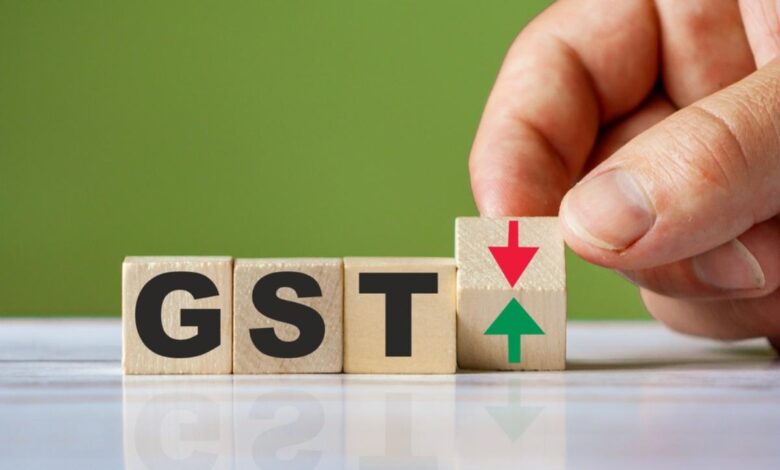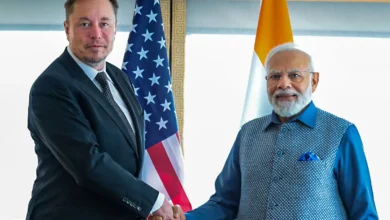New GST Rates Come into Effect Today: Household essentials like Rice, Atta, Paneer to get costlier
Pre-packed and pre-labelled food items (cereals, pulses, flour) containing a quantity up to 25kgs would attract 5% GST.

Post the 47th GST Council Meet chaired by Finance Minister Nirmala Sitharaman that was held in Chandigarh last month, the finalized rates to be levied as the Goods and Services Tax (GST) come into effect from today – Monday, July 18.
Among the items that are set to become dearer and more expensive are household essentials such as pre-packed and pre-labelled curd, paneer, wheat, rice, buttermilk and oats containing a quantity up to 25kgs amongst others. These items would now attract a GST of 5% while items that are pre-packaged in a quantity above 25kgs would be exempt from GST.
To clarify the ambiguity on pre-packaged items in the context of food items (flour, pulses, cereals) the Central Board of Indirect Taxes and Customs (CBIC) said, that for example – a packet of pre-packed atta meant for retail sale to the ultimate consumer of 25 Kg shall be liable to GST. However, supply of such a 30-kg pack thereof shall be exempt from levy of GST.
The board also said that GST would apply on a package that contains multiple retail packages, for example, a package containing 10 retail packs of flour of 10 kg each.
It also clarified that packaged commodities supplied for consumption by industrial consumers or institutional consumers are excluded from the purview of the Legal Metrology Act. Therefore no GST will be attracted to this.
What else gets Costlier:
- 5% GST on hospital rooms, except ICU, with rent above Rs 5,000.
- 18% GST on tetra packs, and cheques ( both in loose or book form).
- 18% GST on LED lamps, ink, knives, blades, pencil sharpener, blades, spoons, forks, ladles, skimmers, skimmers, cake servers; printing, writing and drawing ink; fixture and their metal printed circuits board
- 18% GST on Power-driven pumps, bicycle pumps, and dairy machinery.
- 12% GST on solar water heater instead of the previous 5%.
- 18% GST on works contracts for roads, bridges, railways, metro, effluent treatment plant, crematorium and others as opposed to the earlier 12%.
- 18% GST on RBI, Irda, and Sebi services and renting of a residential dwelling to business entities.
- 12% GST on bio-medical waste treatment facilities.
- 12% GST on Maps and charts, including atlases.
What gets Cheaper:
- 12% GST on renting trucks, and goods carriages where the cost of fuel as opposed to the earlier 18%.
- 5% GST down from the earlier 12% on Ostomy appliances and transport of goods and passengers by ropeways.
- GST exemption on the transport of passengers by air to and from northeastern states and Bagdogra will be restricted to economy class only.
- 5% concessional GST rate on Electric Vehicles, whether or not fitted with a battery pack.
Opposition hits out at Centre over hike, however, did not oppose 5% GST on food items at Council Meet
Soon after the new GST rates were imposed, several opposition leaders hit out at the Centre over the hike in rates especially the 5% GST on essential food items, even raising concerns over the country’s economic growth.
Delhi Chief Minister Arvind Kejriwal (AAP) said, “Highly disheartened to see that, on one hand, the price rise is breaking the backs of citizens of India, and on the other hand, the Central government is raising GST rates for essential food items. I demand that they take back this decision.”
Rahul Gandhi also targeted the Govt over “high taxes and no jobs” while sharing a graph of the new GST rates calling it the BJP’s masterclass of “how to destroy what was once the world’s fastest-growing economy”.
Congress leader Shashi Tharoor slammed the move calling it “breathtakingly irresponsible at a time of mounting economic difficulties for most Indians”. “The Aam Aadmi will bear the brunt of the burden even as inflation eats into his earnings. Does this government believe it can get away with anything?” he questioned.
However, what is extremely ironic in midst of this criticism is that representatives of states ruled by many of these opposition parties were in fact present in the GST Council Meet that was held last month and were part of the decision that was taken to hike the rates.
“The tax is part of an ongoing effort to rationalise tax rates and stabilise the GST regime. With the end of the guaranteed compensation period to make good any shortfall in taxes, states no longer have an incentive to push for lower rates (a move usually driven by political considerations)”, experts had said at the time.
BJP Spokesperson Zafar Islam, while pointing this out said that opposition leaders such as Rahul Gandhi were deliberately trying to mislead people over the 5% GST on food items while blaming the Govt.
“The GST council takes these decisions after thorough deliberations with finance ministers of states, including where the opposition parties are in power, and finalise any rates unanimously”, he said. “While members of opposition parties support the decision in the meeting, their leaders mislead people outside”, he added, claiming that this would backfire since people are aware of reality.



